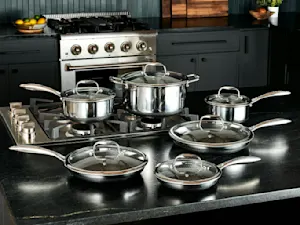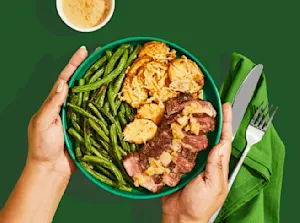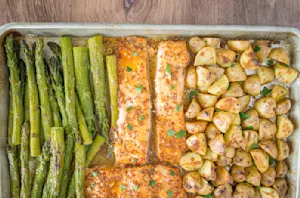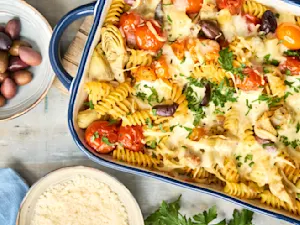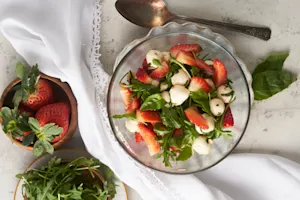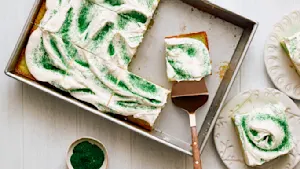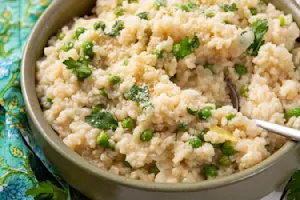
Can You Freeze That?? Find out.
To freeze or not to freeze — that is the question!
Among the best kitchen inventions of the 20th century — alongside sliced bread and the microwave — is the freezer. It was certainly a boon to caretakers and homemakers, who could now keep food for longer and not have to whip up a fresh dinner every evening.
However, as wondrous as freezers are, they are not the ideal tool for all situations. While a great number of foods can be frozen (and then later defrosted) and maintain their original quality, some things cannot. The following is a brief list to get you started on using your freezer efficiently.
Yes, You Can Freeze That!
Pasta Sauces
If you like to spend your Sunday simmering spaghetti sauce on the stove, your best course of action is to make a large batch and freeze some of it for a hearty meal in the future. The freezer works best for tomato-based sauces; cream-based sauces like vodka or alfredo sauce can separate after defrosting (more on that below).
Additionally, do you have an overabundance of basil in your garden in the summertime? Make a large batch of pesto and freeze it in an ice tray for individual servings to enjoy pesto pasta during the winter.
Breads and Muffins
Need a quick breakfast? Make dozens of muffins or several loaves of zucchini bread and freeze it all for an on-the-go meal just as comforting as the day it was baked. The same can be said for bagels and non-sweet bread, as well. Store breads by wrapping in plastic wrap as well as aluminum foil and defrost by leaving on the kitchen counter to reach room temperature. Oh, and make sure you slice it before you freeze; nothing is more frustrating than trying to saw through a frozen-solid bagel.
Soups and Stews
When you feel a cold coming on, the last thing you want to do is spend the day cooking. Nourish your body with premade frozen chicken broth or chili instead. The pasta sauce principle applies here, too; cream-based soups probably won't work as well as other broths. If you plan to eat soup with pasta, just freeze the soup base. When you reheat, add the fresh pasta then.
Nuts
This one isn't merely a suggestion — you really should be storing nuts in the freezer. Because of their high oil content, nuts can go bad within a couple of weeks if stored in the pantry at room-temperature. Depending on the type of nut, they can last sometimes up to two years in the freezer. As just one example, walnuts can last up to a year in the freezer as opposed to just a few weeks when not stored in the freezer.
Casseroles
Life comes at you fast — you never know when a loved one might be going through a tough time and could use a homemade meal. Freeze a broccoli, cheese, and rice casserole or a breakfast bake with egg and sausage to bring over to a friend in need on the fly. Before cooking the casserole, line the baking dish in parchment paper so you can store and wrap the casserole in another container, freeing up your baking dish to be used again.

No, Don't Freeze That
Dairy-Based Foods
Sour cream, mayonnaise, cream cheese, and yogurt will likely curdle and separate in the freezer, leaving dairy-heavy foods and sauces—like chowder or Alfredo sauce, for example, deeply unappetizing.
Water-Rich Produce
Fruits and veggies with a high-water content, like watermelons, apples, cucumbers, and lettuce, will be mushy, wilted messes upon defrosting. Don't worry — you can still freeze smoothie favorites like berries, mangoes, and bananas. If in doubt, remember that moisture is the enemy of the freezer.
Herbs
Simply putting whole herbs in the freezer will cause them to brown and wilt, similar to the water-rich produce mentioned above. You can still preserve herbs in the freezer if you take extra measures like chopping them and freezing them in cubes of oil or water. That way, whenever you need a serving to infuse a dish with herby flavor, you can just add the cube to your pan and let it melt.
Cooked Pasta
It's common knowledge that pasta cooked al dente — with just a little bite left in — is the ideal way to consume it. When you add fully-cooked pasta to the freezer it absorbs more moisture, leaving noodles that are mushy and mealy upon defrosting.
Fried Foods
French fries and mozzarella sticks can certainly be sold frozen and cooked to perfection, but freezing and reheating them again will lead to mushy messes that won't crisp no matter how hard you try. Enjoy these foods while they're at their best — fresh and piping hot.
To freeze or not to freeze, that is always the question. But now you have the knowledge to avoid the slings and arrows of terrible mushy foods and use your freezer to its maximum potential!







